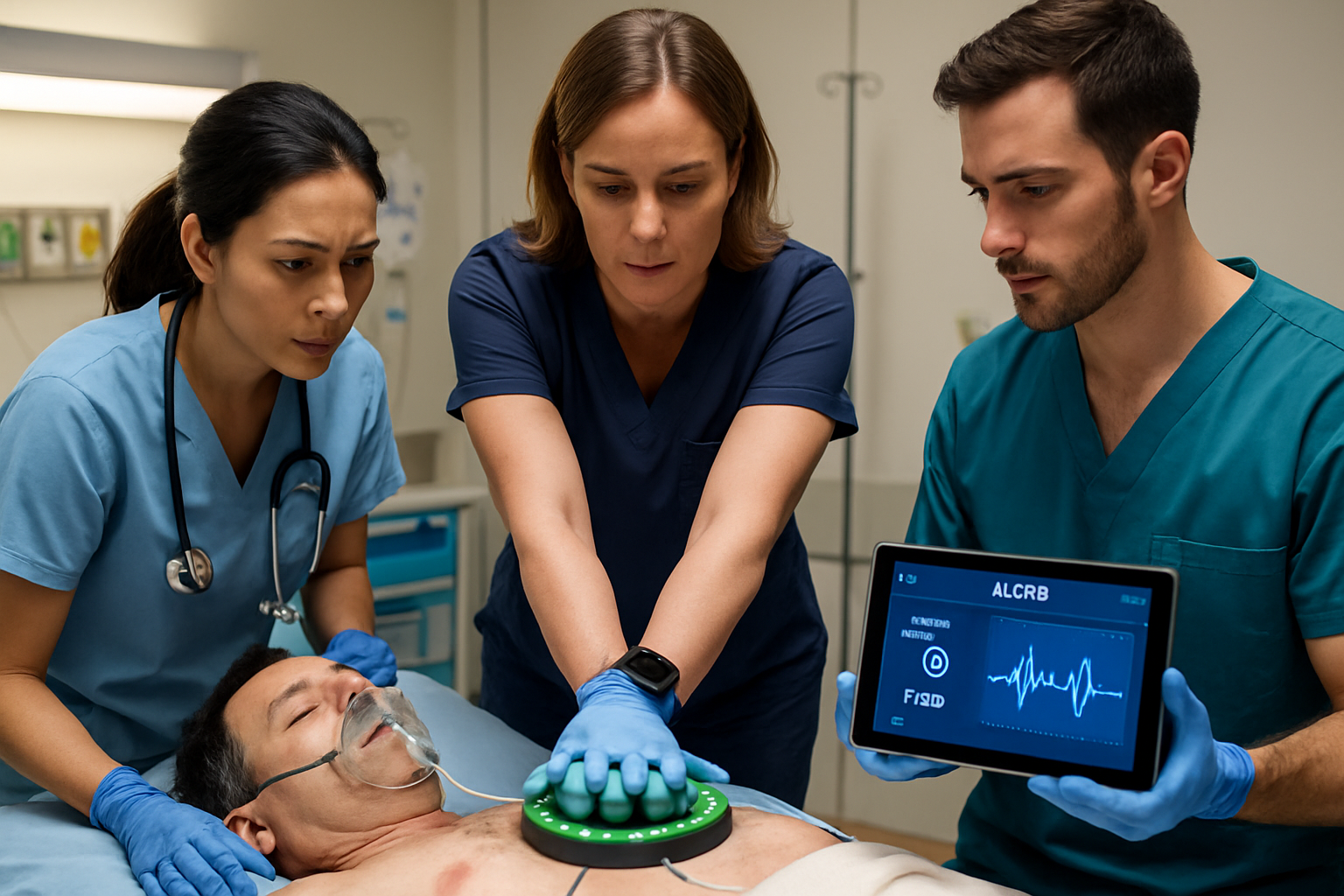Quick Take
- Concordia University develops AI system that cleans distorted CPR signals in real-time during emergencies
- New technology outperforms existing filtering methods across multiple biomedical applications
- System uses unsupervised machine learning, requiring no pre-labeled data for deployment
- Healthcare organizations can integrate into existing equipment without complete replacement
- Research shows consistent performance improvements regardless of environmental conditions
Concordia researchers create breakthrough AI system that dramatically improves CPR monitoring accuracy during cardiac emergencies, potentially transforming global emergency medical response protocols.
According to the Concordia University research team led by PhD candidate Saidul Islam, this AI system significantly enhances the quality of CPR signal monitoring in chaotic emergency settings.
Researchers at Concordia University have created an artificial intelligence system that dramatically boosts CPR signal accuracy during cardiac arrest emergencies. The innovation could transform how medical teams worldwide respond to life-threatening situations by addressing a critical gap where vital signs become corrupted in chaotic emergency environments.
Emergency Care Challenge Addressed Through Advanced AI
The research team, led by PhD candidate Saidul Islam and Professor Jamal Bentahar from the Concordia Institute for Information Systems Engineering, developed technology that tackles persistent signal distortion problems. When cardiac arrest strikes, medical teams rely on live data from chest compression depth, blood pressure, and breathing patterns to guide lifesaving interventions.
However, ambulances, hospital wards, and emergency rooms create interference that corrupts these vital signals. This forces healthcare professionals to make critical decisions based on unclear information. The new AI system processes multiple CPR signal types simultaneously while maintaining vital correlations between different biomedical measurements.
Superior Performance Over Traditional Methods
Unlike traditional filtering methods that struggle with complex, unpredictable noise patterns, this AI system works without pre-labeled data. This makes it ideal for real-time crisis situations. During testing phases, the technology consistently outperformed existing filtering technologies, delivering cleaner and more accurate signal data across various biomedical applications.
The research team worked with Robin Cohen from the University of Waterloo and Gaith Rjoub of Aqaba University of Technology to validate results published in Information Sciences. The breakthrough represents significant advancement for automated CPR devices and emergency response protocols.
Multi-Modal Framework Transforms Decision-Making
The AI tool adapts to different biomedical data types, ensuring emergency responders receive reliable information despite movement, equipment interference, or environmental noise that previously compromised signal clarity. This addresses a fundamental gap in emergency care where current CPR guidance systems fail when signals become corrupted by external factors.
Medical professionals can now trust the signal data they receive. This leads to better-informed treatment decisions during cardiac arrest situations and potentially improves patient survival rates. The technology’s exceptional adaptability suggests applications beyond traditional emergency settings.
Strategic Implementation Across Healthcare Systems
Healthcare organizations worldwide face similar signal clarity challenges, making this AI solution broadly applicable across different emergency environments. Hospitals, ambulance services, and emergency response teams can integrate this system into existing equipment without requiring complete infrastructure replacement.
The unsupervised learning approach means the technology improves automatically without extensive manual training or data preparation. This reduces implementation costs while accelerating deployment across healthcare networks, creating multiple opportunities for implementation and improvement across diverse medical settings.
Market Implications for Medical Technology
Medical technology companies should recognize this innovation’s significant market potential within the expanding global emergency medical services sector. The combination of aging populations and increasing cardiac arrest incidents drives continued market growth. This positions AI-enhanced CPR monitoring as a clear competitive advantage for equipment manufacturers.
The technology’s adaptability extends beyond CPR monitoring, suggesting applications for other biomedical signal processing challenges. This versatility creates multiple revenue streams for companies investing in similar AI approaches to healthcare technology development.
Implementation Strategy for Healthcare Leaders
Healthcare organizations should evaluate current CPR monitoring capabilities against this new standard. Older filtering systems offer the greatest improvement potential. The AI tool’s unsupervised learning feature minimizes staff retraining requirements during implementation, facilitating smoother technology adoption.
Future developments will likely expand this technology’s scope beyond CPR signals to other emergency medical scenarios. Early adopters can position themselves advantageously for upcoming innovations while immediately benefiting from improved emergency response capabilities.
This breakthrough fundamentally changes how emergency teams can rely on biomedical data during life-or-death situations. The combination of real-time processing, noise elimination, and multi-signal correlation creates unprecedented accuracy for CPR monitoring. This represents more than an incremental improvement in emergency medical technology.






